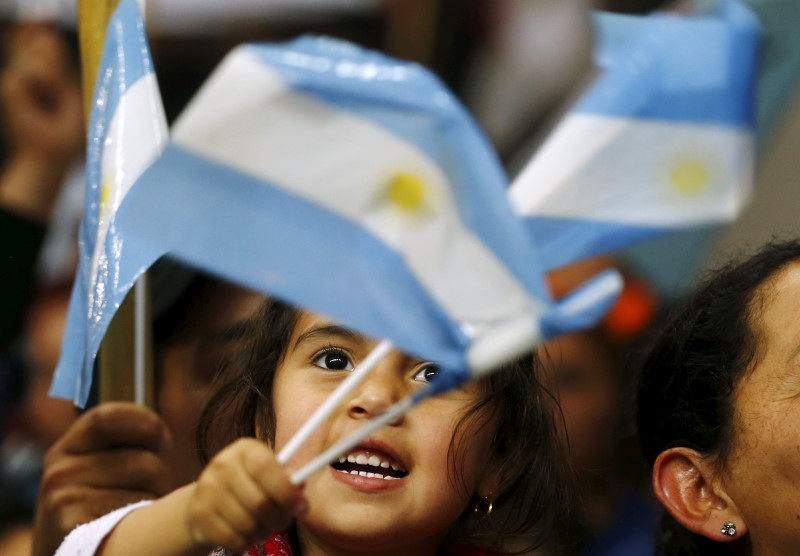By Nicolás Misculin and Maximilian Heath
BUENOS AIRES (Reuters) - Major parties running in Sunday's mid-term congressional election in Argentina suspended their campaigns on Wednesday after a body, thought to be that of a young protester who went missing more than two months ago, was found in a river.
A government spokeswoman said President Mauricio Macri's Cambiemos, or "Let's Change", coalition would halt campaigning for the rest of the day after investigators on Tuesday discovered the body in the Chubut River in the country's southern Patagonia region.
The remains were found near the site where indigenous rights activist Santiago Maldonado was last seen at a tribal rights protest on Aug. 1. Former president and now Senate candidate Cristina Fernandez also suspended campaigning, along with other major figures vying for Congress, their campaigns said.
"We have halted all events until there is word from either the judge in charge of the case or Santiago's family," a spokesman for Fernandez's Unidad Ciudadana, or "Citizens' Unity" party told Reuters.
In the final week of campaigning the Maldonado case has overshadowed the congressional election, which is expected to give Macri's coalition additional seats but not a majority in either chamber.
Some opposition and rights groups believe state security forces took Maldonado, a 28-year-old craftsman, and allege Macri's government covered up information on his whereabouts. Macri's government has said that there is no evidence that shows security forces detained Maldonado.
Potential cases of abuse by security forces are sensitive in Argentina, where the 1976-1983 military dictatorship secretly detained, tortured and killed people in clandestine prisons. Rights groups say up to 30,000 people "disappeared."
The markets will watch Sunday's election to see if business-friendly Cambiemos emerges as the main vote-getter in the bellwether province of Buenos Aires. Investors say they prefer Macri's orthodox economic policies to those of Fernandez, a free-spending populist who led the country from 2008 to 2016.
While it has dominated headlines, political analysts have said they do not expect the case to change votes.
